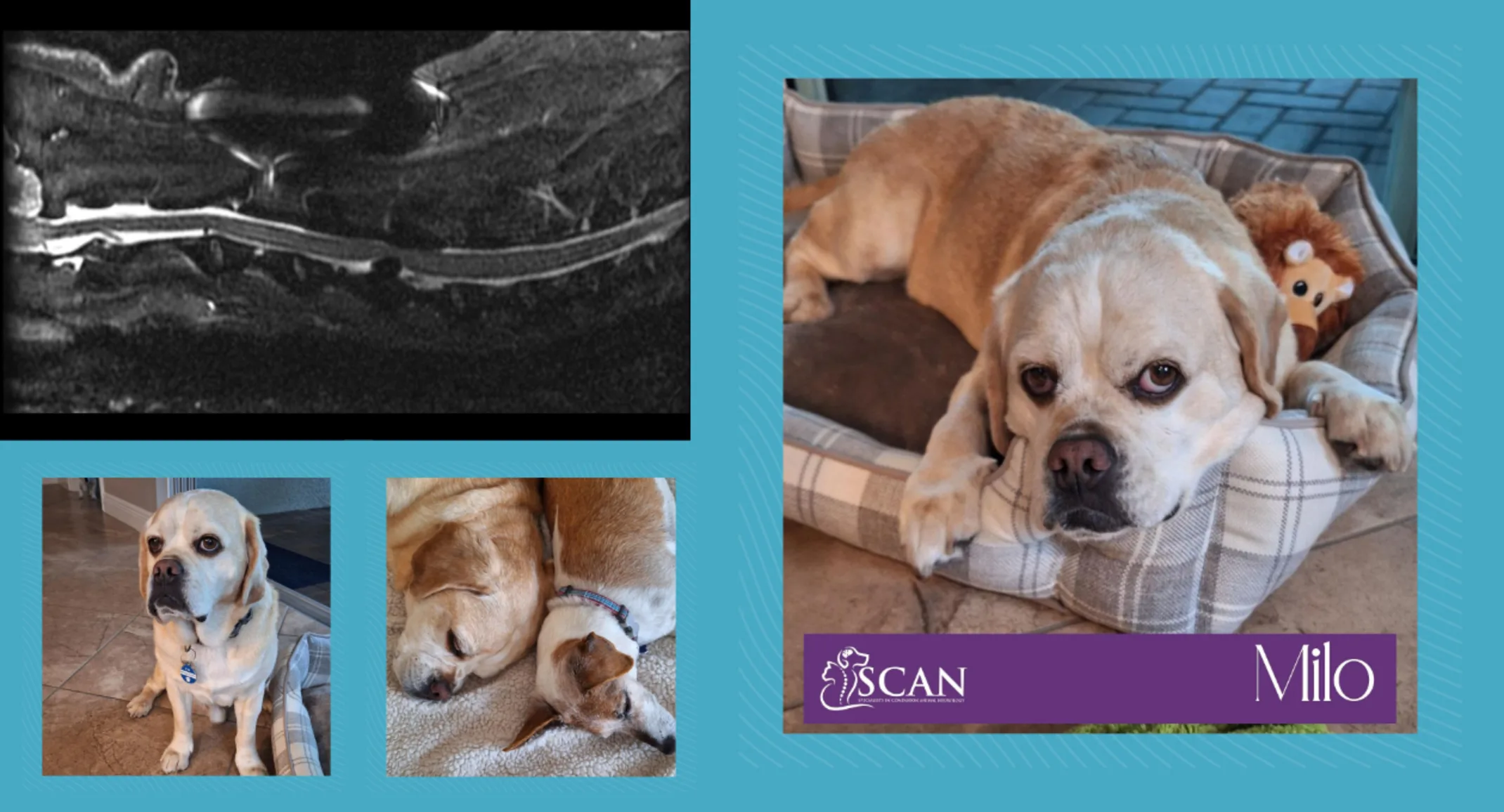Patient Story: Milo Taylor
Case Studies

Intervertebral disc disease is one of the most common neurological diseases causing everything from pain to paralysis. While cervical intervertebral disc herniations are rarely emergencies, they have significant impact on quality of life and sweet Milo was no exception.
Milo, a 9 year old Puggle, began showing signs of neck pain in mid-April.
While he initially responded to pain medications, he began to worsen after about 10 days of treatment and was referred to SCAN. By the time he was examined by Dr. Pancotto he had difficulty using his right front limb and was in significant pain. His neurological examination was consistent with a C1-T2 lesion, with suspicion for an injury at the junctional segments (C4-C6). A disc herniation was considered most likely and needed to be confirmed with an MRI for diagnosis and surgical planning.
His MRI revealed a C4-5 disc herniation that was compressing the spinal cord nearly 50%! He was immediately taken for a ventral slot procedure to remove the herniated material.
A ventral slot procedure is performed by approaching the vertebral column from the ventral side of the neck. A small hole no wider than 30% of the vertebral body and no longer than 30% of the vertebral body in each direction is drilled out under magnification. This creates a “slot” defect that is about 5 mm wide by 12 mm long in Milo’s case. Using a variety of small instruments the extruded material is removed from the spinal canal to alleviate the compression. Degenerate disc material is chalky and firm, like pebbles or a rock, and feels like grit if you roll it in your fingers.
Milo recovered well from surgery and showed immediate improvement. By the next day his neurological examination was normal and he looked like a new dog!
While neurosurgery is a delicate procedure, neurologists undergo years of advanced training and perform hundreds of these surgeries to become proficient. Patients like Milo are so rewarding because the years of education and training results in immediate gratification post-operatively for everyone!
